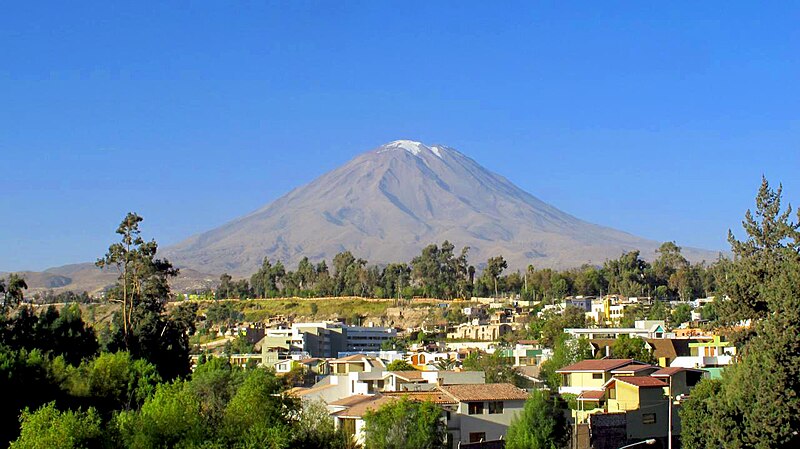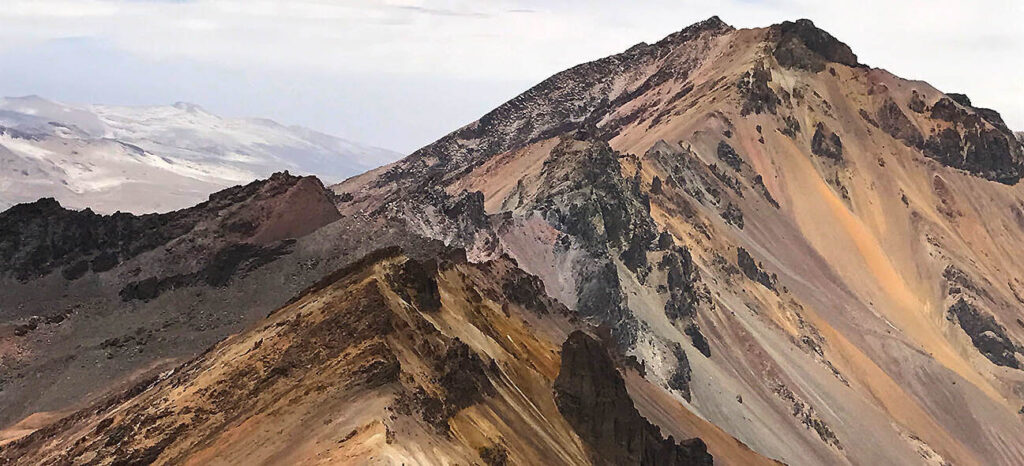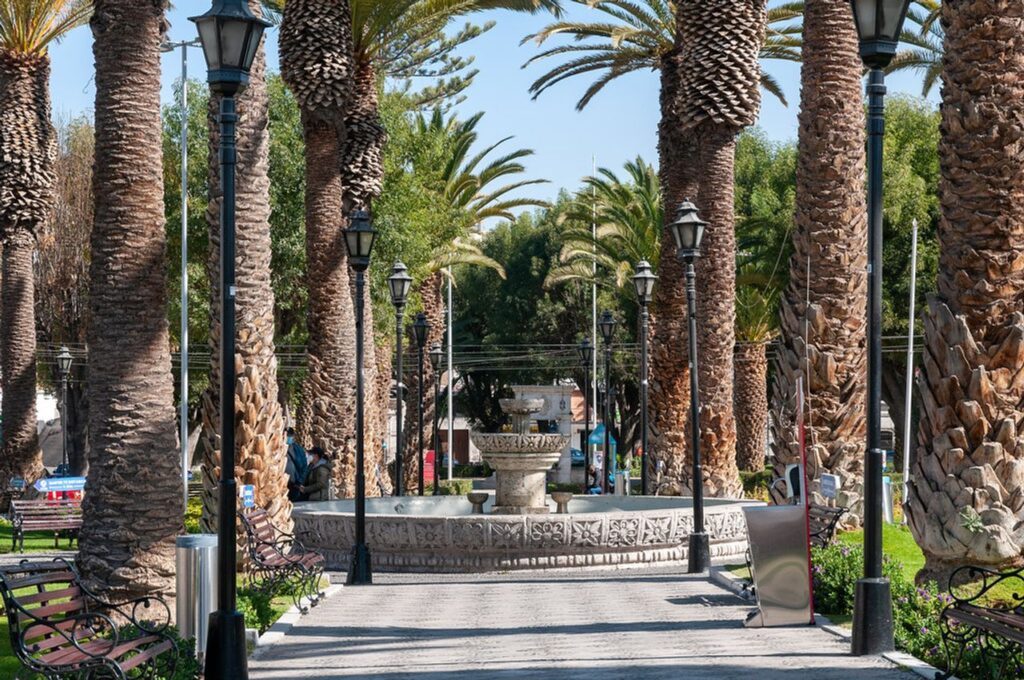One of the most iconic places in Arequipa is the Yanahuara Viewpoint, an almost mandatory stop for anyone visiting the city. This charming spot offers one of the most impressive panoramic views of the urban area and the majestic volcanoes that surround it: Misti, Chachani, and Pichu Picchu. Located in the traditional Yanahuara district, it blends history, architecture, and natural beauty. Best of all: admission is completely free.
Where is the Yanahuara Viewpoint located?
The viewpoint is located in the Yanahuara district, just 2 kilometers northwest of Arequipa’s Plaza de Armas. Its proximity to the historic center makes it easily accessible on foot or by taxi within minutes.
How to get there
From the heart of the city, simply cross the Chili River and take El Ejército Avenue. Then continue along cobbled, narrow streets typical of the district until you reach the viewpoint. The route is perfect for those who enjoy walking through traditional areas with colonial charm.

History of the district and its name
Yanahuara gets its name from the ancient pre-Inca inhabitants known as the Yanaguaras, who were skilled in agriculture and herding. After the conquest, the Spanish established an indigenous settlement here, turning the area into a mix of cultures. Today, Yanahuara is one of the city’s most identity-rich neighborhoods.
The charm of the Viewpoint
Built in the 19th century, the viewpoint is composed of a series of arches carved in sillar, a white volcanic stone typical of Arequipa. Each arch bears famous quotes from renowned Arequipeños, adding a cultural and reflective touch to the visit.
Colonial surroundings
Next to the viewpoint stands the San Juan Bautista Church, an 18th-century temple that enhances the colonial atmosphere. Nearby streets show Andalusian influence, with wrought iron balconies, old mansions, and a peaceful vibe perfect for contemplation.
Arequipa’s natural guardians: its volcanoes
Misti Volcano
This natural icon of Arequipa rises to 5,820 meters above sea level. Its conical shape can be seen clearly from the viewpoint.

Chachani Volcano
Standing at 6,057 meters above sea level, it’s one of the tallest and most accessible volcanoes for mountaineering. Its summit is snow-capped most of the year.

Pichu Picchu Volcano
With multiple peaks, its highest point is Coronado at 5,665 meters. It’s known for Inca archaeological remains, including sacrificial mummies.

Sillar: the white stone that built a city
Origin and historical use
Sillar is a volcanic stone formed from ancient eruptions millions of years ago. It has been the main material in colonial structures such as churches, convents, and bridges in Arequipa—including the viewpoint itself.
The Sillar Route
Today, a tourist route called “La Ruta del Sillar” lets visitors explore this resource and its importance in local architecture.
Useful information for your visit
Entrance fee
Entry to the Yanahuara Viewpoint is completely free for all visitors. It’s also included in some organized city tours, which cost around $60 per person.
Opening hours
Although there are no official hours, it’s best to visit during the day to enjoy the views and take photos. At sunset, the scenery becomes even more stunning.
Other nearby attractions
San Juan Bautista Church
A baroque-style temple known for its intricately carved sillar façade and single-nave design. It is a key part of the neighborhood’s charm.
Yanahuara Plaza

A cozy space with gardens, a central fountain, and several souvenir shops, cafés, and restaurants where you can taste the best of Arequipean cuisine.
Glass viewpoint
A different experience: a raised glass platform that allows you to see the city from above—ideal for those seeking a unique and thrilling perspective.
Tips for your visit
- Wear comfortable clothing and a light jacket: the weather is mild but can change quickly.
- Use appropriate shoes for walking on cobblestone streets.
- Don’t forget your camera or a phone with good resolution—the viewpoint is perfect for memorable photos.
- Take the opportunity to try local specialties like rocoto relleno or adobo at nearby restaurants.